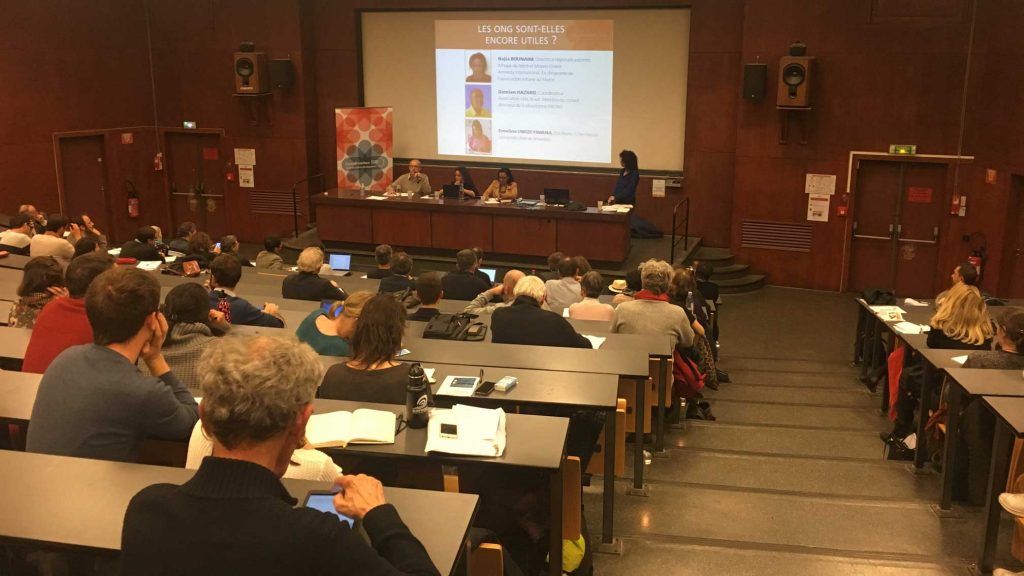On March 14, 2019, at the University of Paris III, Coordination SUD launched “OngLAB“, its mission dedicated to the decoding of the current transformations in the field of international solidarity. The OngLAB aims to produce analyses and to conduct studies of general interest to feed the debate in the aid sector. Philippe Jahshan, President of Coordination SUD inaugurated and presented this think tank as a tool for deciphering the evolutions and transitions that cross the world of international solidarity by accompanying NGOs in these changes through the production of research and analysis.

The debate that followed the presentation, organized in partnership with AFD (French Development public Agency) and the Fondation de France, was moderated by journalist Sabah Rahmani, deputy editor-in-chief of the Kaizen newspaper. Entitled “Are NGOs still useful?”, it focused on the utility and ambivalence of international NGOs. By seeking to foster critical distance and questioning through cross-views between researchers and development professionals, OngLAB’s objectives are in line with certain missions of the French Red Cross Foundation.
Coordination SUD had asked three speakers to take part in this vast debate, among them Emeline Uwizeyimana, PhD in Sociology from the Université libre de Bruxelles and recipient of a postdoctoral fellowship from the French Red Cross Fund in 2016. Emeline Uwizeyimana is Rwandan, and a specialist of humanitarian aid effectiveness. She completed her post-doc on “The Humanitarian Transition in a Burundian Refugee Camp in Rwanda” (access the research project presentation). Two other speakers were invited: Najia Bounaim, Deputy Regional Director North Africa and Middle East of Amnesty International, and Damien Hazar, Coordinator of the Vida Brazil Association.
Among the issues raised by the panellists were the question of the independence of local NGOs from the “South”, often hampered by the demands of Western funding bodies, as well as the mistrust shown towards civil society organizations by some actors. Emeline Uwizeyimana emphasized the importance of involving beneficiaries and respecting their culture in implementing development projects. Najia Bounaim, as a former leader of a Moroccan association, said that the challenge for NGOs in the “South” was to change their model and not just fulfil their role of “outsourcing” to international NGOs. . Damien Hazar stressed that the role of the NGOs is not to fill the gaps of the State through development programs, but to denounce the shortcomings of the State by producing studies, and thus to influence the public policies.
The interventions of the three panellists prompted several exchanges with the large public, which took place in the amphitheatre A of Paris Sorbonne Nouvelle University. François Grünewald, director of the URD think tank notably questioned the use of the expression “utility of NGOs”, wondering what the alternative would be and what roles would then be attributed to State actors.
A lively debate and a successful launch for OngLAB!





